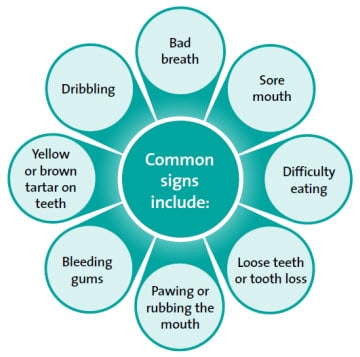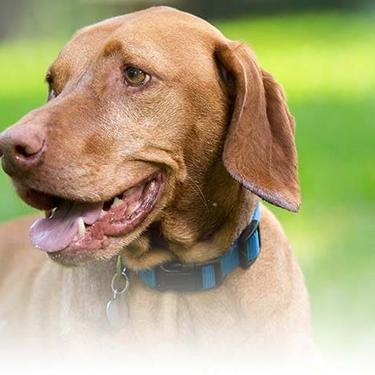
-
Find the right food for your pet
Take this quiz to see which food may be the best for your furry friend.
Find the right food for your pet
Take this quiz to see which food may be the best for your furry friend.
Featured products
 Small & Mini Savory Stew with Chicken & Vegetables Dog Food
Small & Mini Savory Stew with Chicken & Vegetables Dog FoodA delicious complement to the nutrition of Science Diet Small & Mini 7+ dog food
Shop Now Adult Healthy Cuisine Roasted Chicken, Carrots & Spinach Stew Dog Food
Adult Healthy Cuisine Roasted Chicken, Carrots & Spinach Stew Dog FoodDelicious roasted chicken paired with tender vegetables in a succulent stew
Shop Now Adult 7+ Perfect Digestion Chicken, Whole Oats & Brown Rice Recipe Dog Food
Adult 7+ Perfect Digestion Chicken, Whole Oats & Brown Rice Recipe Dog FoodScience Diet's breakthrough nutrition supports ultimate digestive well-being & healthy microbiome for dogs age 7+
Shop NowFeatured products
 Adult 7+ Senior Vitality Chicken & Vegetable Stew Cat Food
Adult 7+ Senior Vitality Chicken & Vegetable Stew Cat FoodImproves Everyday Ability to Get Up & Go
Shop Now Adult Savory Entrée Can Variety Pack Cat Food
Adult Savory Entrée Can Variety Pack Cat FoodPrecisely balanced nutrition with the delicious taste of savory minced chicken to help fuel the energy needs of cats during the prime of their life
Shop Now Adult 7+ Tender Tuna Dinner Cat Food
Adult 7+ Tender Tuna Dinner Cat FoodWith delicious chunks in a decadent gravy
Shop Now -
Dog
- Dog Tips & Articles
-
Health Category
- Weight
- Food & Environmental Sensitivities
- Urinary
- Digestive
- Joint
- Kidney
-
Life Stage
- Puppy Nutrition
- Adult Nutrition
- Senior Nutrition
Cat
- Cat Tips & Articles
-
Health Category
- Weight
- Skin & Food Sensitivities
- Urinary
- Digestive
- Kidney
-
Life Stage
- Kitten Nutrition
- Adult Nutrition
Featured articles
 Does My Pet Hate Me?
Does My Pet Hate Me?Learn tips for bonding with your pet if you've ever thought, 'My dog doesn't like me, or 'Why do I have a standoffish cat?'
Read More Why Are Dogs and Cats So Cute?
Why Are Dogs and Cats So Cute?If waggy puppy dog tails and furry kitten yawns make you swoon, you're not alone. Why are cats so cute? And, dogs too! Let's find out!
Read More Do Dogs and Cats have Belly Buttons?
Do Dogs and Cats have Belly Buttons?Learn whether cats & dogs have belly buttons like humans, what the function is, and if there are any health concerns associated with it.
Read More -


Related Image Content
Spending a lot of face time with your pooch is a fun time for both of you - until you get a whiff of his breath! Taking care of your dog's teeth can do more than just freshen his breath - it could improve his quality of life.
What is dental disease?
It can be difficult to keep your dog's teeth clean, so dental health problems are very common.
In fact, research shows that at around the age of 2, 80% of dogs have some sign of dental disease. Problems usually start with a buildup of sticky plaque that hardens to form tartar. If not removed, this can lead to gingivitis, a painful condition of inflamed gums, and eventually periodontal disease may develop. Dogs may lose teeth and be prone to infections that may affect other organs in the body.
What causes dental disease?
Plaque, a colorless film on your dog's teeth, is the perpetrator of bad breath and gum disease. Because he doesn't brush his teeth like you do, this plaque can cause tartar buildup. The result is swelling, redness and inflammation of the gums - otherwise known as gingivitis. If not checked, your dog can develop periodontal disease, which destroys the gums and tissue that support his teeth.
The condition is serious, but don't worry, dental disease is preventable and treatable in most dogs. Ask your veterinarian for a complete oral checkup for your dog and schedule regular dental cleanings
There are some factors that can contribute to dental health problems in dogs. These include:
Age: Dental disease is more common in older dogs
Breed: Small dogs are more likely to have overcrowded or misaligned teeth that are difficult to keep clean, making them more prone to dental disease.
Food: Feeding sticky dog foods can lead to a more rapid buildup of plaque.
It's surprisingly easy to keep your dog's teeth and gums clean and healthy. The first step is to ask your veterinarian about a professional prophylaxis to clean the teeth. After that, you should feed a special dry dog food made in larger pieces (kibbles) that wipe the teeth clean as your dog eats them. Also start brushing your dog's teeth regularly. Your veterinarian will advise you on how to do this.


Tasty Tips
Does my dog have oral health problems?
If your dog has oral health problems, the first thing you'll notice is his bad breath. If you notice any of the following, it could mean your dog has a dental problem. If you notice any of the following signs in your dog, contact your veterinarian for a complete examination.
- Bad breath
- Sore mouth
- Difficulty eating
- Loose teeth or tooth loss
- Pawing or rubbing the mouth
- Bleeding gums
- Yellow or brown tartar on the teeth
- Dribbling

IMPORTANT: Even if your dog isn't showing signs of oral health problems, it's worth asking your veterinarian for a dental checkup and advice on how to clean your dog's teeth to prevent problems in the future.
The importance of nutrition
The food your dog eats plays an important role in his overall health and well-being. Normal dry dog food provides a dental benefit for your dog because when he crunches on the kibbles, the moderate scraping action cleans his teeth. If your dog has the more serious symptoms of gingivitis, specially formulated dog foods are available which can do a much better job of cleaning his teeth than normal dry dog food.
Balanced nutrition is an essential part of an active, healthy lifestyle. If your dog has dental health problems, it's even more important to feed the right dog food. For accurate diagnosis and treatment options, always consult your veterinarian and ask them to recommend the best food for your dog's dental health.
Ask Your Veterinarian About Dental Health & Disease:
- Are there any foods I should avoid giving my dog because of his condition?
- Ask how human food can affect your dog's health.
- Would you recommend a Hill's® Prescription Diet® dog food for my dog's dental health?
- Ask about special nutritional concerns for your dog
- How much / how often you should feed the recommended food to your dog
- How quickly should I expect to see signs of improvement in my dog's condition?
- Can you provide me with written instructions or a booklet on dental health & disease for my dog?
- What is the best way (email/phone) to reach you or your hospital if I have questions?
- Ask if you need a follow-up appointment.
- Ask if a reminder email or notice will be sent.


One of our staff authors prepared this article for you
Related products

Science Diet's breakthrough nutrition supports ultimate digestive well-being & healthy microbiome for dogs age 7+

Delicious roasted chicken paired with tender vegetables in a succulent stew

Delicious braised beef paired with tender vegetables in a succulent stew

A delicious complement to the nutrition of Science Diet Small & Mini 7+ dog food
Related articles

Learn about choosing the right food for your mature or older dog, ensuring he receives the correct balance of nutrition.

Large and giant breed puppies have different nutritional needs than other dogs. Learn how to provide the special care they need to grow up big and strong.

Your dog's coat and skin are a big part of your dog's overall health. Ensure you keep your dog's coat healthy, by following these simple tips.

Hill's Science Diet Small & Toy Breed dog foods are designed to meet the nutritional needs for your small dog at every life stage. Learn more here.

Put your dog on a diet without them knowing
Our low calorie formula helps you control your dog's weight. It's packed with high-quality protein for building lean muscles, and made with purposeful ingredients for a flavorful, nutritious meal. Clinically proven antioxidants, Vitamin C+E, help promote a healthy immune system.
Put your dog on a diet without them knowing
Our low calorie formula helps you control your dog's weight. It's packed with high-quality protein for building lean muscles, and made with purposeful ingredients for a flavorful, nutritious meal. Clinically proven antioxidants, Vitamin C+E, help promote a healthy immune system.

